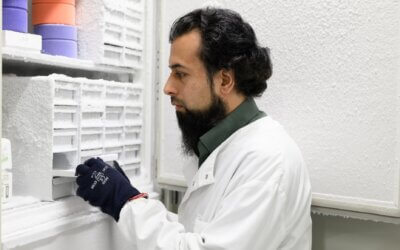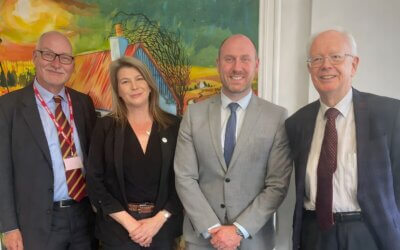Continuous action is essential when developing policy change with health issues as serious as aortic dissection. This week, we presented three critical proposals to the Department of Health and Social Care: enhancing the national strategy on aortic dissection diagnosis, providing clear genetic guidance and improving patient care.
Health Ministers Will Quince MP and Helen Whately MP held a focused meeting with the charity to examine these proposals which have been directly shaped by feedback from patients, their families, and medical professionals.
During the meeting, the Trust gave a detailed briefing on its ongoing work, which includes current research projects, awareness campaigns targeting healthcare professionals, and advocacy for patients and their families. The ministers provided updates on the government’s efforts to enhance early diagnosis protocols, especially for patients affected by type A aortic dissection.
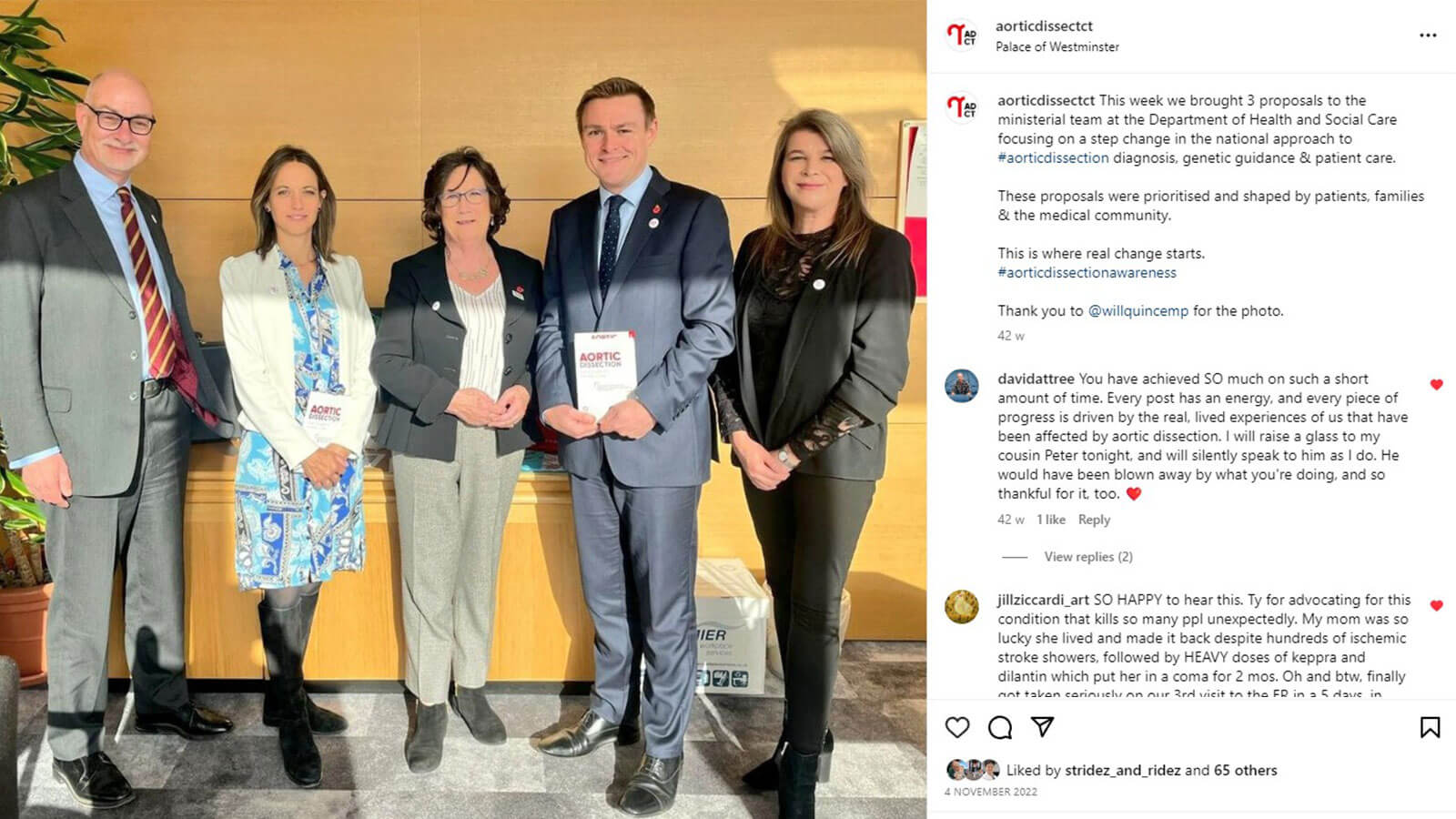
Meeting the Secretary of State
Following the productive meeting with the ministers, the next step has been set in motion. The ministers have agreed to discuss the proposals with Steve Barclay, the current Secretary of State for Health and Social Care of the United Kingdom. While we await their response, the work of the Trust continues unabated. We remain committed to our ongoing projects, which include research, awareness campaigns, and patient advocacy, as we strive for improved aortic dissection care and outcomes.
Pauline Latham’s Input to Change
Pauline has actively worked at the policy level, striving for concrete changes in how this condition is addressed in the UK. Her notable contributions towards policy improvements include:
Meeting with the Health Secretary
Back in 2019, Pauline organised a meeting with the Health Secretary, advocating for a comprehensive national aortic dissection strategy. Along with trustee Catherine Fowler, this meeting served as an opportunity to shed light on important risk factors like high blood pressure. Yet, identifying risk factors isn’t enough; more research is urgently needed to understand why certain families are more susceptible to AD. The aim is not just treatment but effective prevention. During the meeting, the challenge of diagnosing was also highlighted. Fortunately, substantial strides have been made in clinical guidance, thanks to collaborations with organisations like the Royal College of Emergency Medicine (RCEM) and the Society for Cardiothoracic Surgery (SCTS). Following the meeting, the Department for Health planned to prioritise funds dedicated to further research on the issue and take recommendations from the Healthcare Safety Investigation Branch (HSIB).
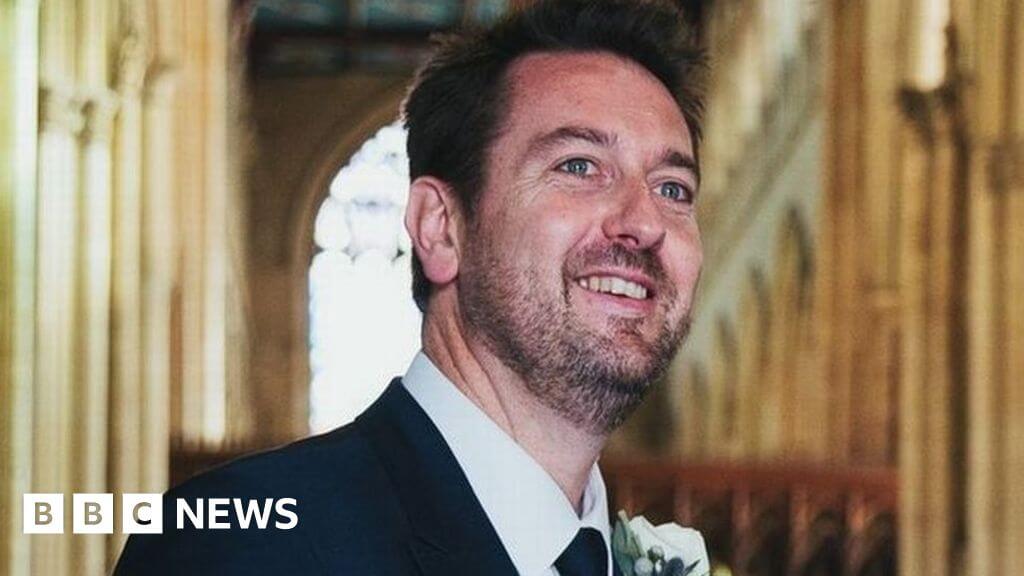
Parliamentary Efforts
Pauline has tabled questions directed at the Department of Health and Social Care, specifically probing about measures being undertaken to ensure the proper diagnosis of aortic dissection in A&E departments. The response from Jo Churchill MP underscored the NHS Improvement’s Specialised Cardiac Improvement Programme, highlighted the need for the development of a guide and toolkit to bring standardisation in A&E departments across the board.

All Party Parliamentary Group on Rare Diseases
Diseases like aortic dissection, while devastating, are fortunately rare, sometimes leading to a lack of awareness and research. Pauline’s active participation in the All Party Parliamentary Group on Rare Diseases, supporting this cross-party forum aiming to amplify the discourse around such diseases in Parliament. Resulting in a framework tailored to guide the strategy concerning rare diseases. What’s even more promising is the development of nation-specific plans, detailing solid commitments. Additionally, the new Innovative Medicines Fund, designed to enhance access to avant-garde treatments, seems promising for those grappling with rare conditions.
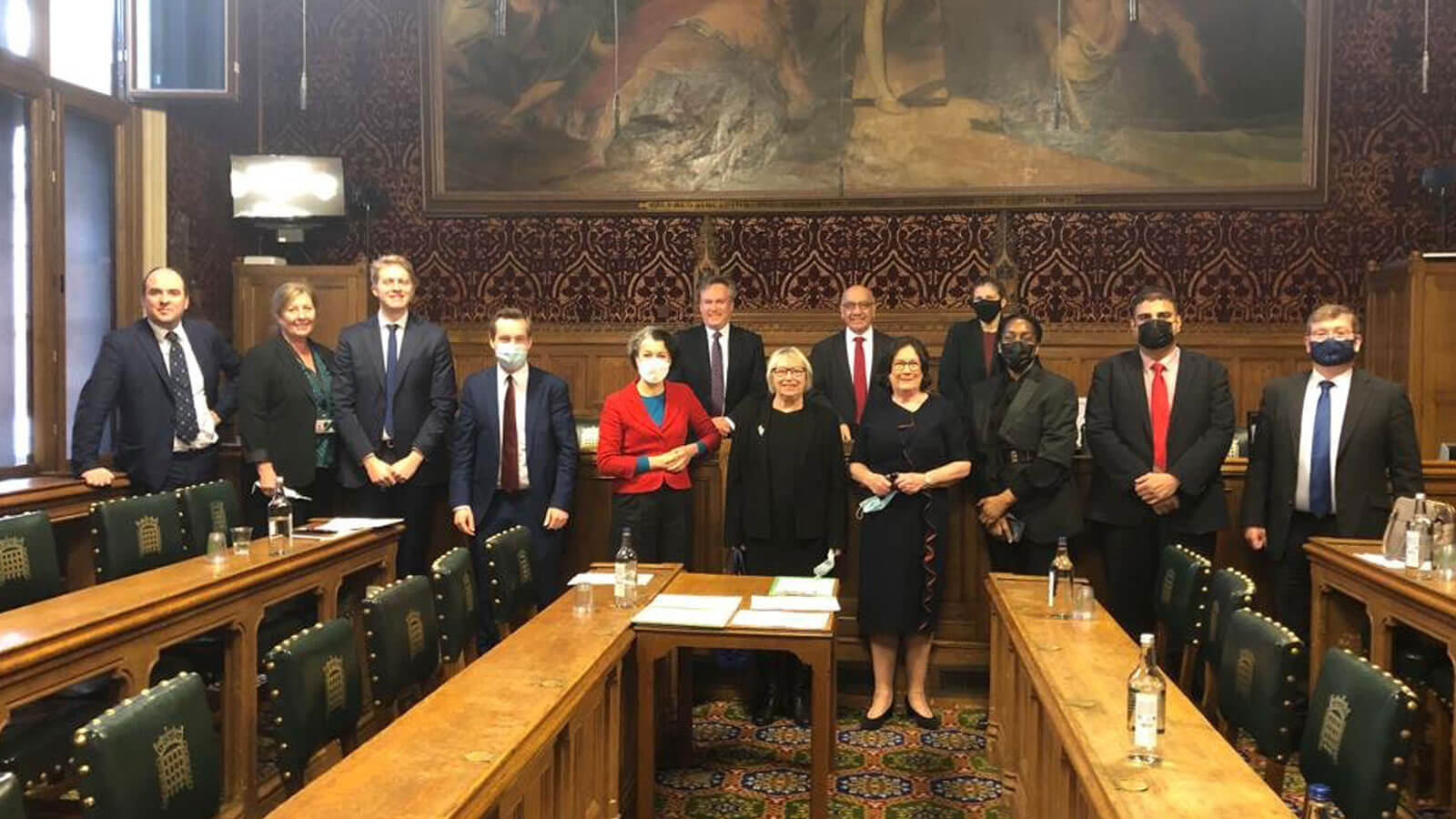
Prime Minister Questions
Pauline’s advocacy hasn’t stopped at departmental queries. She’s taken her cause to the very top, raising the aortic dissection issue during Prime Minister’s question time. Both the Prime Minister and the Secretary of State for Health and Social Care directly addressed Pauline’s concerns, marking a significant recognition of the issue.
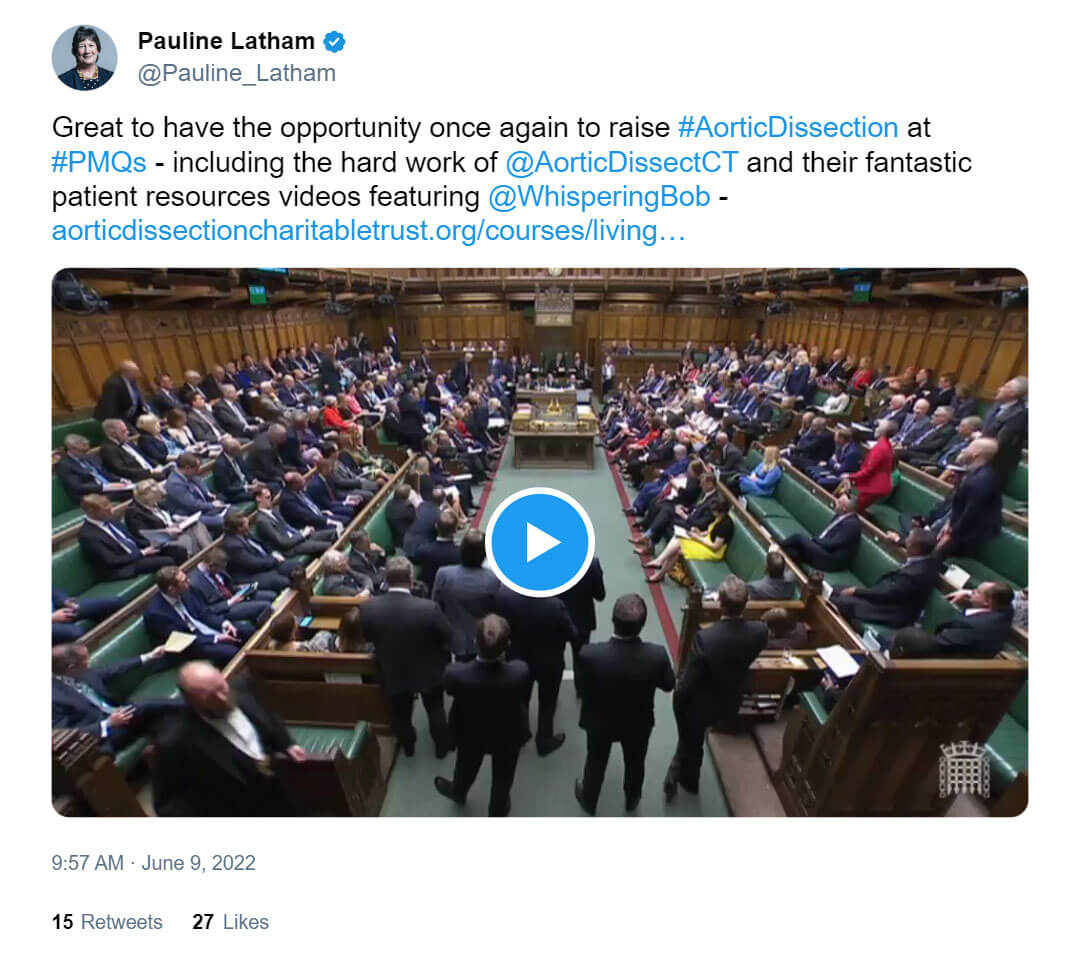
Westminster Hall Debate
Concrete discussions pave the way for tangible outcomes. Recognising this, Pauline is due to facilitate a dedicated Westminster Hall debate on Aortic Dissection. This debate provides an opportunity for detailed deliberation, ensuring the matter receives the focused attention it deserves.
The combined efforts of Pauline Latham, the government, and the Aortic Dissection Charitable Trust signify a positive shift in addressing aortic dissection. The advocacy in Westminster is a testament to the need for informed and concerted action against this medical condition.


